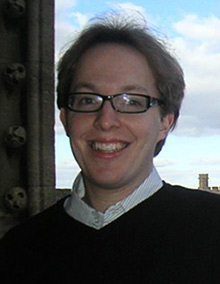
By Andrew Cohen
Berkeley Law’s growing collaborations with other campus departments have yielded a new benefit for students: the Interdisciplinary Graduate Certificate in Real Estate.
The certificate recognizes training in real estate that encompasses law, investment, and the role of development in the built environment. It marks the culmination of a joint effort by Berkeley Law, the Haas School of Business, and the College of Environmental Design to provide wide-ranging skills for real estate-oriented careers.
“Real estate is fundamentally an interdisciplinary field that requires you to interact with a multitude of players,” Berkeley Law student Steven McCarty ’15 said. “Given that, this certificate program is a great way to get a head-start.”
Law students have access to real estate courses—offered by Berkeley Law and other UC departments—that include students from other graduate programs on campus. Specialized courses are available in city planning and design, development entitlements, financial and asset market analysis, construction and real estate transactions, and housing and land use policy.
While the certificate requirements vary by school, students must take specific classes within the other two disciplines and participate in a group project or external real estate competition where they weave together the various threads of real estate transactions.
“This gives our students a chance to work closely with students in other departments who will be the type of people they’ll work with throughout their professional careers,” said Ken Taymor, executive director of the Berkeley Center for Law, Business and Economy. “It’s critical to develop and refine interdisciplinary skills, and to work with peers in different fields.”

The certificate will help students compete for jobs in law firms, public and private corporations with real estate investments, planning positions, design practices, local government, real estate development, and companies involved in real estate capital markets.
Classroom inspiration
McCarty learned about the certificate while taking Land Development and Investment with lecturer Bill Falik. “I really enjoyed the course because it brought together so many students from different backgrounds,” McCarty said. “Law, environmental design, civil engineering, architecture … we worked in teams and saw first-hand how valuable it was to approach a problem through different perspectives.”
McCarty’s team placed second last spring at the inaugural Pircher, Nichols & Meeks Joint Venture Challenge, a Berkeley Law competition in which students simulate real-world business transactions by financing, structuring, and drafting deals. In November, he will join a UC Berkeley team at the National Real Estate Challenge in Austin, Texas, where competitors will scrutinize real estate investment opportunities and dissect their strengths and pitfalls.
Having worked for a redevelopment agency and a housing non-profit before law school, McCarty zeroed in on real estate “because you get to work with people in all kinds of interesting fields towards something tangible. It’s a fascinating field with many competing interests, rights, and legal concerns.” He said pursuing the certificate has helped him “learn how to communicate with business people, planners, and architects—and learn how they view different issues.”

First-year student Samuel Grubner ’17, who started a small real estate company in Toronto before enrolling at Berkeley Law, also welcomed the news of the certificate offering.
“I was considering a joint JD-MBA degree, but this offers some of the same benefits with a year less of schooling,” he said. “I have a strong interest in housing law and real estate law, and the prospect of taking classes and making contacts with other young people entering the industry is very appealing. It’s an exciting opportunity because this program can help intersect my experience in a meaningful and powerful way.”
Taymor emphasized that the certificate’s value is not limited to budding real estate lawyers, and that it would benefit a wide range of law students.
“Even if you don’t end up doing transactional or environmental work,” he said, “the certificate program provides key insight into business and how different fields work together.”